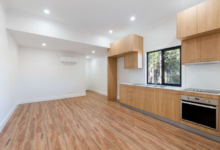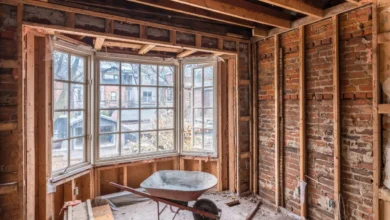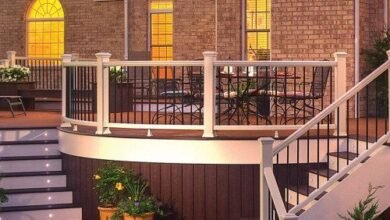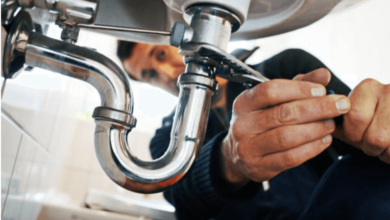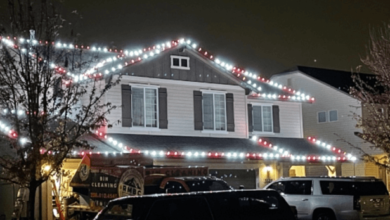All You Need to Know About Garage Doors: A Detailed Guide for Homeowners
Garage doors are a crucial component of residential properties, providing both functionality and security. They not only enhance the aesthetic appeal of your home but also offer protection for your vehicle and additional storage space. Understanding the various aspects of garage doors, from their types to their maintenance and repair needs, can help homeowners make informed decisions. This comprehensive guide covers everything you need to know about garage doors, with a focus on Garage Door System Repair and residential garage conversion.
Types of Garage Doors
1. Sectional Garage Doors
Sectional garage doors are among the most popular choices for homeowners. These doors are made of several panels hinged together, which allows them to slide up and overhead, fitting neatly under the ceiling. They are ideal for homes with limited space in front of the garage.
2. Roll-Up Garage Doors
Roll-up garage doors are designed for high-traffic areas and commercial settings but are increasingly used in residential properties. They roll up into a coil above the doorway, offering a compact solution that does not require additional space.
3. Slide-to-Side Garage Doors
Slide-to-side garage doors operate by sliding horizontally along the wall of the garage. They are an excellent option for homes with short driveways or where overhead space is limited.
4. Side-Hinged Garage Doors
Side-hinged garage doors open outward, much like traditional barn doors. They are ideal for homes with ample space on either side of the garage entrance.
5. Tilt-Up Garage Doors
Tilt-up garage doors are a single solid piece that tilts up into the garage’s ceiling. They are simple in design but require more clearance space than sectional or roll-up doors.
Garage Door System Repair
Common Issues
Garage doors are complex systems with many moving parts, making them susceptible to various issues. Common problems include:
- Broken Springs: Garage door springs bear the weight of the door and are under significant tension. Over time, they can break or wear out, leading to a malfunctioning door.
- Faulty Openers: Garage door openers are responsible for the automated operation of the door. Malfunctions in the opener can cause operational issues or complete failure.
- Misaligned Tracks: The tracks that guide the door can become misaligned, causing the door to stick or operate unevenly.
- Worn Rollers: Rollers help the door move smoothly along the tracks. Worn or damaged rollers can cause noise and hinder the door’s movement.
Repair Tips
Regular maintenance and timely repairs can extend the lifespan of your garage door system. Here are some tips:
- Inspect Regularly: Regularly check the condition of your garage door springs, tracks, and openers. Look for signs of wear or damage.
- Lubricate Moving Parts: Keep the moving parts of the garage door system, such as hinges and rollers, well-lubricated to ensure smooth operation.
- Address Issues Promptly: If you notice any unusual noises or operational issues, address them promptly to prevent further damage.
- Professional Help: For significant repairs or issues beyond basic maintenance, consult a professional garage door technician. They have the expertise and tools to handle complex repairs safely and effectively.
Residential Garage Conversion
Understanding Garage Conversion
Residential Garage Conversion involves transforming your garage into a functional living space. This can include turning it into an additional bedroom, office, gym, or even a rental unit. Converting a garage can significantly increase the usable space in your home and enhance its value.
Planning Your Conversion
Before starting a garage conversion project, consider the following factors:
- Local Regulations: Check with your local building department for zoning laws and permit requirements. Certain areas may have restrictions on garage conversions.
- Structural Integrity: Ensure that the garage structure can support the changes you plan to make. You may need to reinforce the foundation, walls, or roof.
- Insulation and Ventilation: Garages typically lack proper insulation and ventilation. Upgrading these systems is crucial for maintaining comfort and energy efficiency in the new space.
- Utilities: Depending on the intended use of the converted space, you may need to add or upgrade electrical, plumbing, and heating systems.
Professional Assistance
Converting a garage is a significant project that often requires professional expertise. Architects, contractors, and designers can help you plan and execute the conversion, ensuring that it meets your needs and complies with local building codes.
Conclusion
Garage doors are more than just an entryway to your home; they are a key element in maintaining the security, functionality, and value of your property. Understanding the different types of garage doors and their specific needs, including system repair and potential conversions, will help you make informed decisions. Regular maintenance and timely repairs are essential for ensuring the longevity of your garage door system, while a well-planned garage conversion can provide valuable additional space for your home. Whether you’re repairing an existing door or considering a garage transformation, proper knowledge and professional guidance are key to achieving optimal results.

